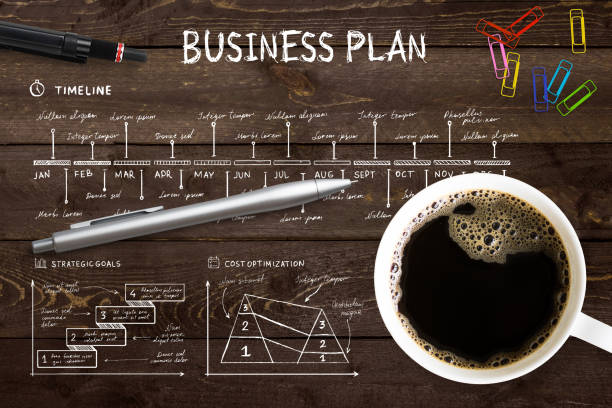Small Business Accounting 101 – Small businesses face many challenges in managing their finances, especially when they are growing and expanding. Accounting is not only about keeping track of income and expenses, but also about planning, budgeting, forecasting, tax compliance, and more. Hiring a professional accountant can help small business owners save time, money, and headaches in the long run. In this article, we will discuss why you need an accountant for your small business, how to find one that suits your needs and budget, and what to expect from their services.
READ ALSO
- How to Use a Checking Account: A Beginner’s Guide
- Allstate Personal Injury Protection: How They Help After an Accident
- Insurance Lapse in New York: A-Z
- How to Get a Real Estate License in Texas (TX): A Step-by-Step Guide
- Invoice Factoring Services: What You Must Know
- How to Sell Annuities: A Guide for Annuity Owners
Why You Need an Accountant for Your Small Business
An accountant is a person who has the training and expertise to handle various financial tasks and provide advice for your business. An accountant can help you with:
- Writing a business plan: An accountant can help you create a realistic and comprehensive business plan that includes financial projections, cash flow analysis, break-even points, and more. A good business plan can help you secure funding, attract investors, and set goals for your business.
- Choosing a business structure: An accountant can help you decide the best legal structure for your business, such as sole proprietorship, partnership, limited liability company (LLC), or corporation. The choice of business structure affects your tax obligations, personal liability, and reporting requirements.
- Preparing financial statements and tax returns: An accountant can prepare accurate and timely financial statements, such as income statements, balance sheets, and cash flow statements, that show the performance and position of your business. An accountant can also prepare and file your tax returns, ensuring that you comply with the tax laws and regulations, claim all the deductions and credits you are entitled to, and avoid penalties and audits.
- Dealing with the IRD: An accountant can act as your representative when dealing with the Inland Revenue Department (IRD), the tax authority in Nigeria. An accountant can handle correspondence, queries, disputes, and appeals on your behalf, saving you time and stress.
- Tax planning and minimization: An accountant can help you plan and minimize your tax liability by taking advantage of tax incentives, exemptions, reliefs, and strategies. An accountant can also advise you on how to optimize your cash flow and profitability by managing your expenses, inventory, debtors, creditors, and investments.
- Cash flow management: An accountant can help you monitor and improve your cash flow, which is the lifeblood of your business. Cash flow is the amount of money that flows in and out of your business in a given period. An accountant can help you forecast your cash flow needs, identify potential shortfalls or surpluses, and suggest ways to increase your cash inflow or reduce your cash outflow.
- Business acquisitions: An accountant can help you evaluate the financial viability of buying another business or selling your own. An accountant can perform due diligence, valuation, negotiation, financing, and integration of the deal.
- Applying for loans, grants, or investments: An accountant can help you prepare a convincing proposal or pitch to secure funding for your business from banks, government agencies, or private investors. An accountant can provide financial information, analysis, projections, and recommendations to support your application.
How to Find an Accountant for Your Small Business
Finding a reliable and qualified accountant for your small business can be a daunting task. There are many factors to consider before hiring an accountant. Here are some tips to help you find the best accountant for your small business:
- Determine your needs: Before you start looking for an accountant, you need to determine what kind of services you need from them. Do you need them to handle all aspects of your accounting or just specific tasks? Do you need them regularly or only occasionally? Do you need them to work remotely or onsite? Do you need them to use a particular accounting software or system?
- Ask for referrals: One of the best ways to find an accountant is to ask for referrals from other small business owners in your industry or network. You can also ask your friends, family members, colleagues, mentors, or advisors for recommendations. Referrals can help you find an accountant who has experience working with similar businesses as yours and who has a good reputation.
- Search online: Another way to find an accountant is to search online using platforms such as Bing, Google, LinkedIn, or Facebook. You can also use online directories such as [Nigerian Accountants Directory] or [Chartered Institute of Taxation of Nigeria] to find accountants who are registered and certified by professional bodies. You can also use online marketplaces such as [Paro] or [Upwork] to find freelance accountants who offer their services online.
- Check credentials: Once you have a list of potential accountants, you need to check their credentials and qualifications. You should look for accountants who have relevant education, training, and certification in accounting, such as Bachelor of Accounting, Master of Accounting, Certified Public Accountant (CPA), or Chartered Accountant (CA). You should also look for accountants who have membership and accreditation from reputable professional associations, such as [Institute of Chartered Accountants of Nigeria] (ICAN), [Association of National Accountants of Nigeria] (ANAN), or [Chartered Institute of Taxation of Nigeria] (CITN).
- Compare fees: Another factor to consider before hiring an accountant is their fees. You should compare the fees of different accountants and choose one that fits your budget and offers value for money. You should also ask about the billing method, frequency, and terms of payment. Some accountants charge by the hour, while others charge by the project, retainer, or subscription. Some accountants may also charge extra fees for travel, communication, software, or other expenses.
- Interview candidates: The final step before hiring an accountant is to interview them and assess their suitability for your small business. You should prepare a list of questions to ask them, such as:
- What is your experience in working with small businesses in my industry?
- What are the services you offer and how can you help me with my accounting needs?
- How do you communicate with your clients and how often do you update them on their financial situation?
- What accounting software or system do you use and are you familiar with mine?
- How do you ensure the accuracy, security, and confidentiality of your work?
- How do you handle deadlines, changes, and emergencies?
- How do you deal with the IRD and other authorities on behalf of your clients?
- How do you keep up with the latest accounting standards, rules, and regulations?
- How do you charge for your services and what are your payment terms?
- Can you provide references from your previous or current clients?
You should also ask the candidates to show you samples of their work, such as financial statements, tax returns, or reports. You should also check their online reviews, ratings, testimonials, or feedback from other clients.
What to Expect from an Accountant for Your Small Business
Hiring an accountant for your small business can be a worthwhile investment that can benefit your business in many ways. However, you should also have realistic expectations from your accountant and understand their role and responsibilities. Here are some things to expect from an accountant for your small business:
- An accountant is not a miracle worker: An accountant can help you improve your financial situation, but they cannot make your business profitable overnight. You still need to work hard, make smart decisions, and implement effective strategies to grow your business.
- An accountant is not a mind reader: An accountant can provide valuable advice and guidance for your business, but they cannot read your mind or know what you want. You need to communicate clearly and regularly with your accountant about your goals, expectations, challenges, and concerns. You also need to provide them with accurate and complete information and documents to enable them to do their job properly.
- An accountant is not a substitute for a lawyer: An accountant can help you comply with the tax laws and regulations, but they cannot provide legal advice or representation for your business. You may need to consult a lawyer for matters such as contracts, agreements, disputes, litigation, or intellectual property.
- An accountant is not a one-size-fits-all solution: An accountant may have expertise in certain areas or industries, but they may not be able to handle all aspects of your accounting or meet all your needs. You may need to hire more than one accountant or outsource some tasks to other professionals or firms.
- An accountant is not a permanent employee: An accountant may work with you on a long-term basis, but they are not a permanent employee of your business. They may have other clients or commitments that require their attention and time. You should respect their availability and schedule and avoid unreasonable demands or expectations.
In conclusion, accounting is an essential function for any small business that wants to succeed and grow. Hiring an accountant can help you save time, money, and stress in managing your finances and complying with tax laws. However, finding an accountant for your small business can be challenging if you don’t know where to look or what to look for. By following the tips in this article, you can find an accountant who is reliable, qualified, affordable, and compatible with your small business needs.
Frequently Asked Questions (FAQ): Small Business Accounting 101: Why You Need an Accountant and How to Hire One
How do I know if my accountant is doing a good job?
You can evaluate your accountant’s performance by looking at the quality, timeliness, accuracy, and clarity of their work. You can also check if they are responsive, proactive, trustworthy, and helpful. You can ask them for feedback, reports, or recommendations on how to improve your financial situation. You can also compare their fees and services with other accountants in the market.
What are the benefits of hiring a local accountant vs an online accountant?
Hiring a local accountant can have some advantages, such as having face-to-face meetings, building a personal relationship, understanding the local market and regulations, and having access to their network and resources. However, hiring an online accountant can also have some benefits, such as having lower costs, more flexibility, a wider range of services, and faster communication.
How can I protect my business from accounting fraud or errors?
You can protect your business from accounting fraud or errors by implementing internal controls, such as segregation of duties, reconciliation of accounts, verification of transactions, audit trails, and security measures. You can also monitor your financial statements and records regularly and look for any discrepancies, anomalies, or red flags. You can also hire an external auditor or consultant to review your accounting system and processes.
How can I reduce the accounting fees for my small business?
You can reduce the accounting fees for your small business by negotiating with your accountant for a fair and reasonable price, choosing a suitable billing method and frequency, outsourcing only the tasks that you need help with, keeping your records organized and updated, using accounting software or tools to automate some tasks, and learning some basic accounting skills yourself.
What are some accounting software or tools that can help me with my small business?
Many accounting software or tools can help you with your small business, depending on your needs and preferences. Some of the popular ones are [QuickBooks], [Xero], [Wave], [Zoho Books], and [Sage Business Cloud Accounting]. These software or tools can help you with tasks such as invoicing, bookkeeping, payroll, tax preparation, reporting, and more.

